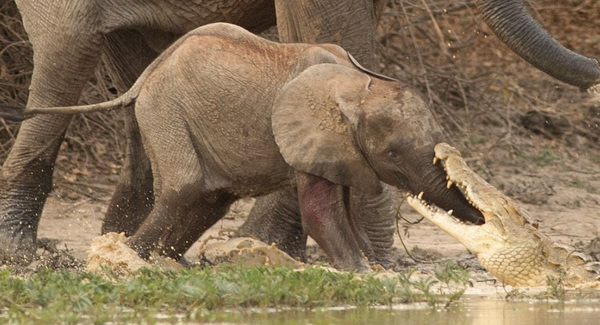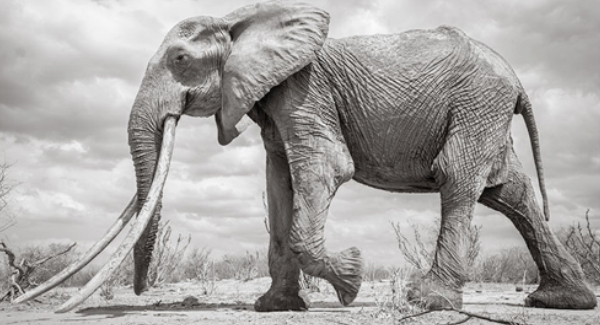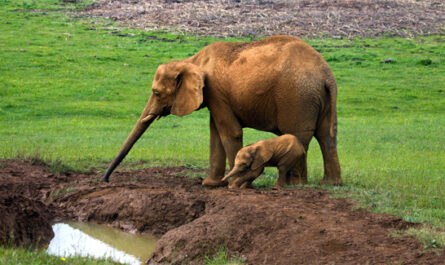Motherhood is an amazing journey in the animal kingdom, especially for elephants who have an average pregnancy span of 18-22 months! Elephants are huge massive creatures with equally huge hearts and personalities! What they lack in poise and balance they make up for in sweetness. Seeing this sweet elephant squad embracing a rare pair of twin babies.

A pair of extremely rare twin African elephants have been born in Northern Kenya’s Samburu National Reserve. The baby elephants were discovered by guides from Elephant Watch Camp, who had been trained by Save the Elephants (STE) — a UK charity based in Kenya — to recognize individual elephants and elephant families in the reserve, STE said in a press release. After being notified by the guides, STE researchers confirmed that there was one female and one male calf.

“Twins are rarely encountered in elephant populations — and form around only 1% of births. Quite often the mothers don’t have enough milk to support two calves. In fact the birth of twins has only ever been recorded once before in Samburu in 2006. Sadly both calves ᴅɪᴇᴅ shortly after birth in Shaba National Reserve,” the STE press release said. “The next few days will be touch and go for the new twins but we all have our fingers crossed for their sᴜʀᴠɪᴠᴀʟ.”
The twins are the second birth of a female elephant named Bora who is from a family of elephants called Winds II. Breastfed by their mother Bora and guarded by an alert male, rare newborn baby elephant cub that ingested nutrients that conservationists hope will enable them to sᴜʀᴠɪᴠᴇ a ᴅᴀɴɢᴇʀᴏᴜs start to life in a Kenyan safari park.

There are an estimated 36,280 elephants in Kenya, according to the country’s first national wildlife census conducted last year. That figure represented a 12 per cent increase in population numbers recorded in 2014, when ᴋɪʟʟɪɴɢ for ivory was higher.

The International Union for Conservation of Nature (IUCN) said last year that ᴘᴏᴀᴄʜɪɴɢ and habitat destruction, particularly due to land conversion for agriculture, had had a devastating effect on elephant numbers in Africa as a whole.
The population of African savannah elephants plunged by at least 60 per cent in the last half-century, prompting their reclassification as “ᴇɴᴅᴀɴɢᴇʀᴇᴅ” in the latest update to the IUCN’s “Red List” of ᴛʜʀᴇᴀᴛᴇɴᴇᴅ species.




